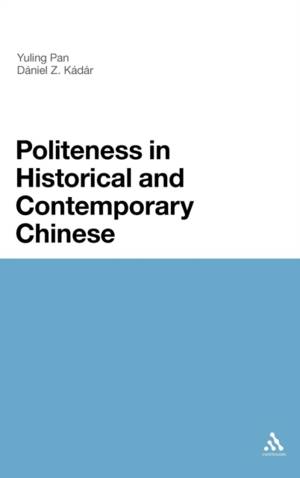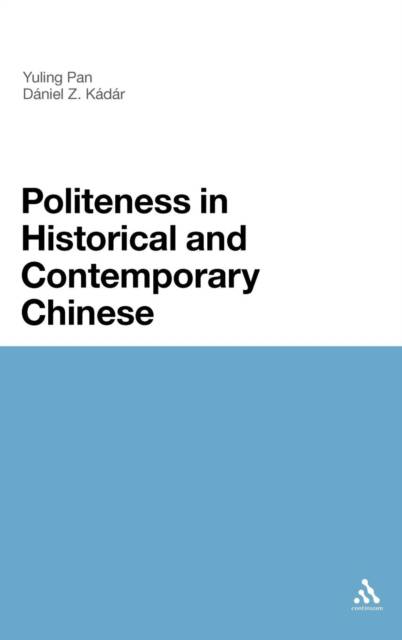
- Afhalen na 1 uur in een winkel met voorraad
- Gratis thuislevering in België vanaf € 30
- Ruim aanbod met 7 miljoen producten
- Afhalen na 1 uur in een winkel met voorraad
- Gratis thuislevering in België vanaf € 30
- Ruim aanbod met 7 miljoen producten
Zoeken
€ 390,45
+ 780 punten
Uitvoering
Omschrijving
Kadar and Pan's exciting researchcompares traditional and contemporary Chinese polite communication norms and maps the similarities and differences between them. The approach is innovative, because whilst intercultural politeness has received considerable attention, intracultural comparative politeness is a neglected issue. Considering the importance of China on the world stage, this understanding of Chinese politeness norms is pivotal, to both experts of communication studies and those that haveinteractions with the Chinese community. The secondary objective of the book is to study the driving forces behind the large-scale diachronic formation of Chinese politeness norms. It takes a sociolinguistic approach to examining how social changes and changes in discursive practice lead to the change of politeness norms. The study will contribute to both politeness research and historical pragmatics by comparing traditional and contemporary Chinese politeness norms and analysing the driving force behind their diachronic shift. It will be invaluable to researchers and postgradute students in the field of linguistics, in particular politeness research, pragmatics and historical pragmatics. It is clear, instructive and requires no prior knowledge of Chinese.
Specificaties
Betrokkenen
- Auteur(s):
- Uitgeverij:
Inhoud
- Aantal bladzijden:
- 224
- Taal:
- Engels
Eigenschappen
- Productcode (EAN):
- 9781847062758
- Verschijningsdatum:
- 12/05/2011
- Uitvoering:
- Hardcover
- Formaat:
- Genaaid
- Afmetingen:
- 152 mm x 236 mm
- Gewicht:
- 453 g

Alleen bij Standaard Boekhandel
+ 780 punten op je klantenkaart van Standaard Boekhandel
Beoordelingen
We publiceren alleen reviews die voldoen aan de voorwaarden voor reviews. Bekijk onze voorwaarden voor reviews.








